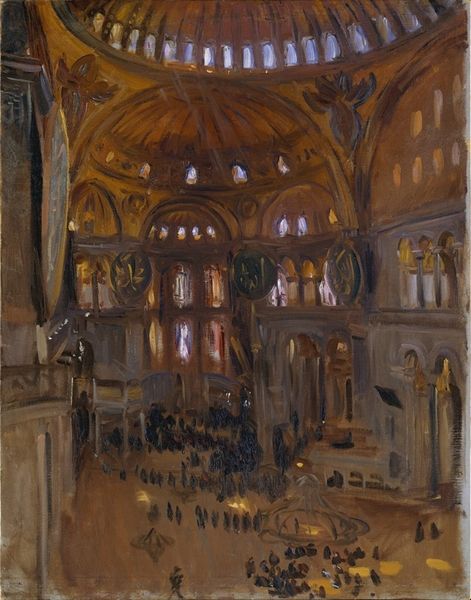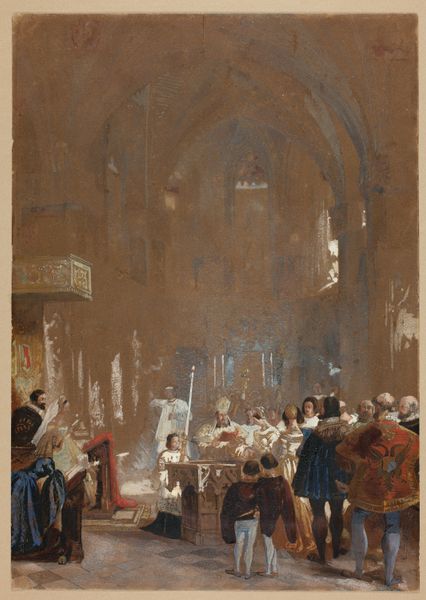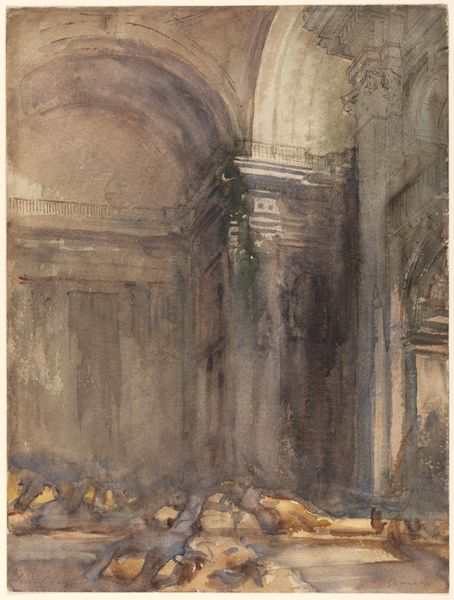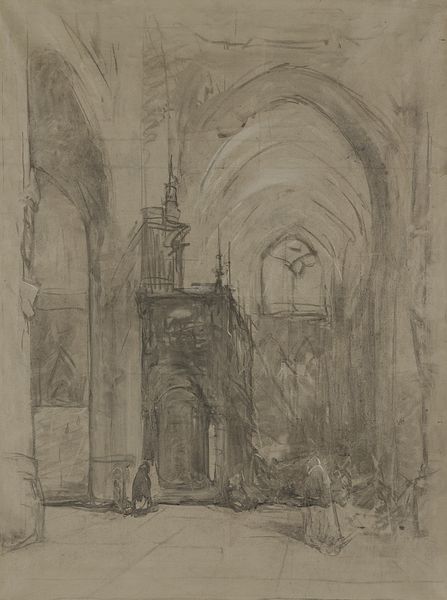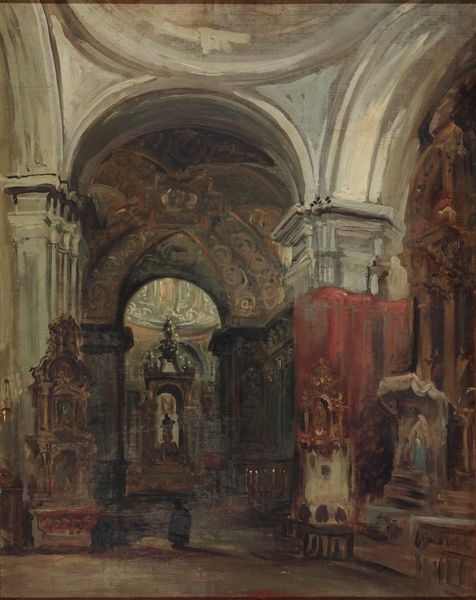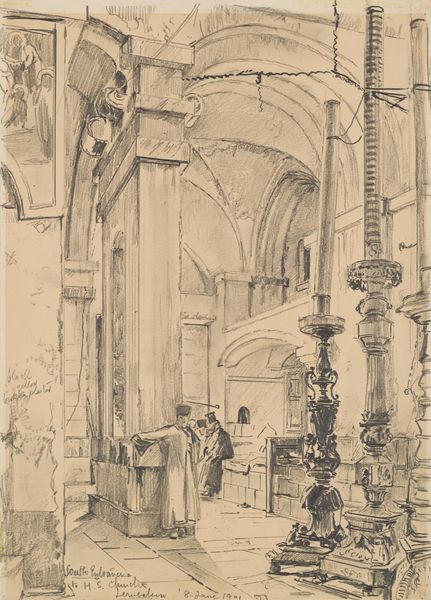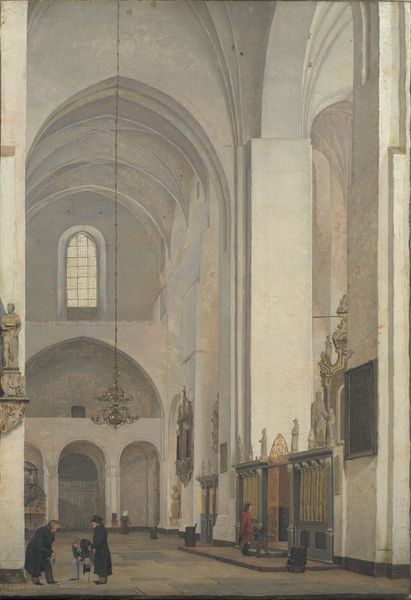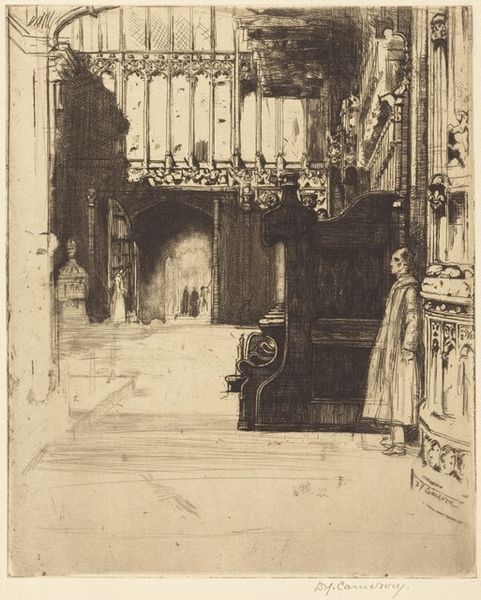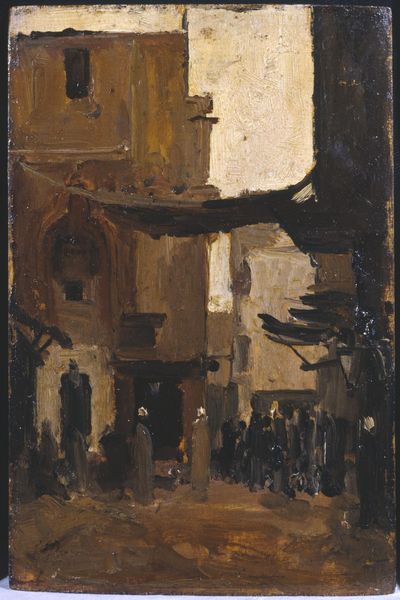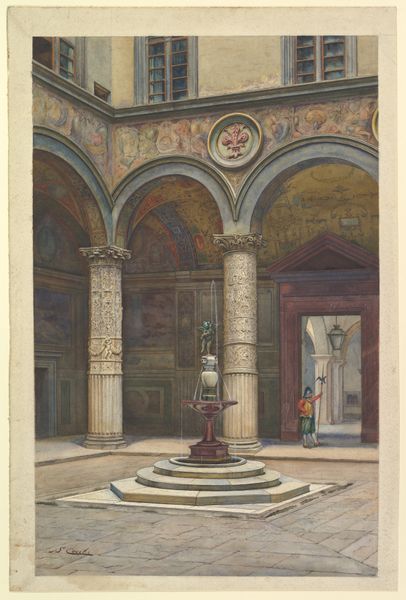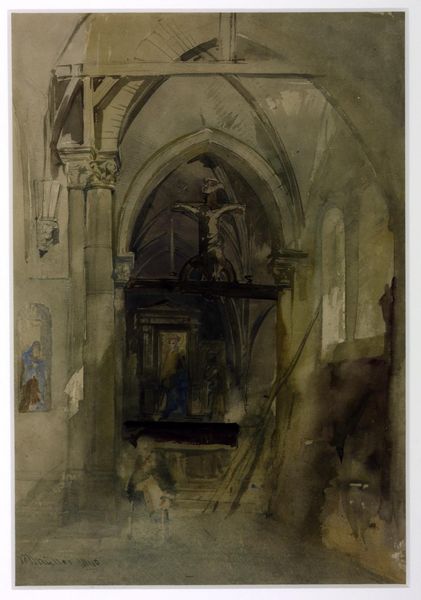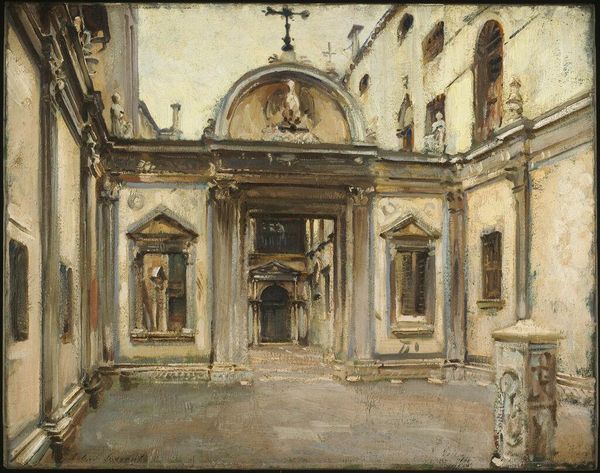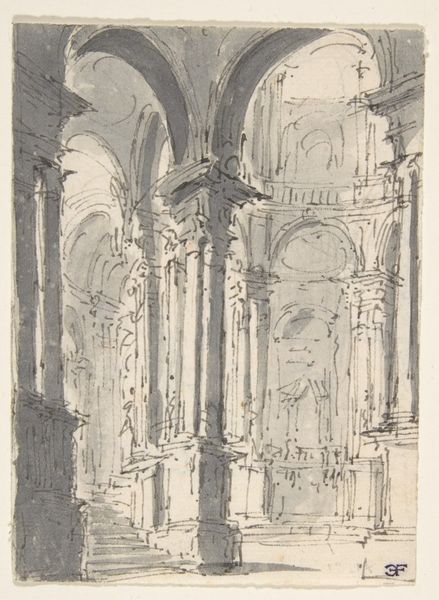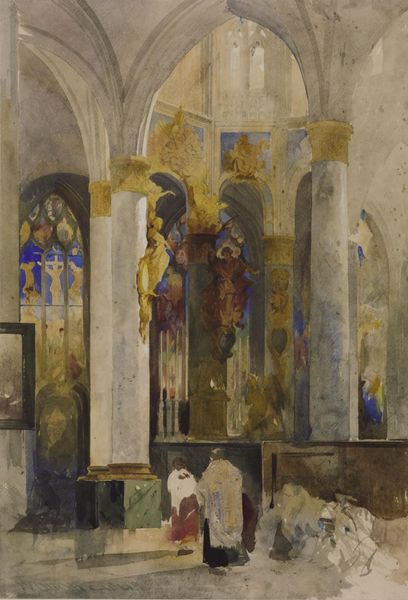
Dimensions: support: 698 x 492 mm frame: 887 x 678 x 70 mm
Copyright: CC-BY-NC-ND 4.0 DEED, Photo: Tate
Curator: Walter Richard Sickert’s "Interior of St Mark’s, Venice," currently housed at the Tate, presents a fascinating, if muted, view of the iconic basilica. Editor: It's incredibly atmospheric. The subdued palette gives it a feeling of hushed reverence, almost melancholic. Curator: Absolutely. The cross, rendered in strokes of gold paint, becomes a powerful beacon. Notice how Sickert uses the architecture to frame it, emphasizing its spiritual weight. The cross is rendered with the most costly pigment, and it takes the spotlight. Editor: And consider the social function of the church itself. It was made to impress, and the labor is clearly on display. Curator: Indeed. The building symbolizes faith, but it also testifies to the power and wealth of Venice. What a contrast! Editor: A testament to faith, wealth, and labor—all swirling together in Sickert’s evocative vision. Curator: It gives us a glimpse into the layered history and complex symbolism embodied within St. Mark’s.
Comments
tate 10 months ago
⋮
http://www.tate.org.uk/art/artworks/sickert-interior-of-st-marks-venice-n05314
Join the conversation
Join millions of artists and users on Artera today and experience the ultimate creative platform.
tate 10 months ago
⋮
This interior shows the high altar of the cathedral of San Marco in Venice. Sickert first visited the city in 1895 and lived there for a year. He wrote that Venice was ‘mostly sunny and warmish and on cold days I do interiors of St. Mark’s’. Like the French Impressionists, Sickert was interested in the effects of both natural and artificial light conveyed in touches of paint. He described his working method at this time as ‘open and loose, freely, with a full brush and full colour’. Gallery label, September 2020
